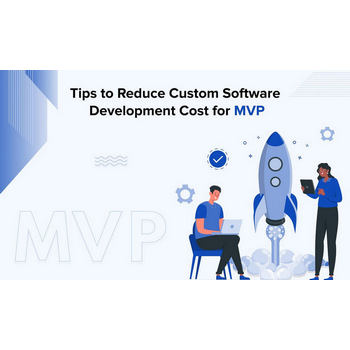In this new article, we share with you some very simple hacks for entrepreneurs on how and why you should keep your personal and business finances separate.
We will be learning about:
- Why you should separate your Personal and Business Finances
- Establishing a Separate Legal Entity
- Getting a Business Credit Card
- Creating a budget
And much more!
Let’s get started

Hacks for Entrepreneurs: How to Keep Your Personal and Business Finances Separate
While it may seem like a good idea to put all your eggs in one basket when it comes to your finances, the truth is, keeping your personal and business finances separate is an absolute must for every entrepreneur out there.
The problem is that, especially if you’re running a one-man operation, it’s easy to help yourself to a pile of cash every time you’re in a bind.
However, this approach could create a whole world of issues, both personal and professional.
There are over 582 million entrepreneurs in the world, which means that the business climate is pretty favourable.
The problem is that, while most entrepreneurs do a pretty good job of wearing multiple hats and being jacks of all trades, they often get stuck when it comes to finances.
According to research, only 9% of entrepreneurs have a Bachelor’s Degree in business.
And by stuck, we don’t mean that they are not able to generate enough revenue, but rather that they get bogged down when it comes to drawing a clear line between their personal and business finances.
Some new entrepreneurs tap their home equity by refinancing as a low-interest source of funds, but if their business goes under they can quickly find they lose their homes.
Why You Should Separate Your Personal and Business Finances
While we could think of any number of cases for separating your finances, we will stick to a handful of the most important ones:
- Legal issues – Although it takes a lot of paperwork to become an LLC, S-corp, C-corp, and so on, you do that because, in a legal sense, you and your business are separate entities, even if you are a solopreneur. For instance, if your business runs into financial trouble and you’re not able to pay your debt, your clients can file a lawsuit and go after your personal assets, since you haven’t gone through the trouble of separating your finances. This is also known as “piercing the corporate veil.”
- Taxes – Even if you have done everything right, when the time comes for you to do your taxes, your accountant or bookkeeper is not going to be happy about your commingled finances. Not only will you waste their time, but it could also lead to inaccuracy, which, in turn, can cause the IRS to run a tax audit on your business.
- Business Lending – When you need to expand your business, you might be interested in getting a loan, line of credit, or any of the available business finance options. However, since you will be required to submit both your personal and business tax returns, this makes it harder for lenders to evaluate you, especially your business in terms of cash flow, revenue, and other business indicators. As a result, they’re more likely to turn you down.
In order to not hurt your chances as a business owner, as well as to keep your sanity as an individual, take a look at the following hacks for separating your personal and business finances.
1. Establish a Separate Legal Entity
To protect your personal assets and avoid any legal issues, such as “piercing the corporate veil,” the best course of action would be to establish a separate legal entity for your business.
When doing this, you should also take into account the kind of business structure you want to create for your company, and that includes the projected number of employees, your financial and business goals for the future, revenue, as well as the amount of taxes you are going to pay, among others.
To create a separate legal entity, you will need to obtain a unique EIN (employer identification number).
This enables the IRS to keep an eye on how much your business is earning, completely separate from your personal finances.
Also, in case your business ever runs into a legal issue, such as a lawsuit, it is this separate legal identity that protects you from being sued as an individual.
Company debts and obligations won’t apply to you as an individual either.
As for what kind of legal entity your company should be, it’s best to talk to a financial expert, accountant, or bookkeeper capable of presenting you with all the pros and cons of each of the available options.
Related: 6 tips to Increase Productivity as digital entrepreneurs and bloggers!
2. Open a Separate Business Bank Account
Once you have established yourself as a business entity, it’s time to open a business bank account.
You can choose between a checking or savings account, but in most cases, choosing a checking account is a much more favorable option.
Why? Because it will enable you to manage your finances and run all the day-to-day operations with relative ease, send out invoices for the products or services you have provided, pay bills, deposit funds, as well as buy additional equipment without having to use cash.
And since your personal and business finances are now separate, you won’t have to reach into your personal funds either.
Even if you are a solopreneur and all the profits end up in your personal checking account, all the money will still have to go through your business account first.
All you need is an EIN and proof of your business from your state.
While this creates an additional step for you, putting money in your business account creates a record, which makes your accountant’s job easier and keeps the IRS from auditing your business.
Also, having a separate business account enables you to work on your business credit score, which means you won’t have to rely on your personal credit score.

3. Get a Business Credit Card
In order to make full use of your business bank account, you will also need to get a business credit card.
One of the reasons it may come in handy is when you decide to apply for a loan.
Getting a loan for a business, especially a small to medium-sized one, is tough, but it’s impossible without a business credit card.
The main benefit of having a business credit card is the separation from your personal finances and keeping your records clean in case the IRS decides to audit you.
Your business credit card might also enable you to get an extra tax deduction. “If you need to carry a balance on a business credit card, that’s the only credit card interest that’s deductible as a business expense,” according to Richard Salmen, a certified financial planner for GTRUST Financial Partners.
Without a business credit card, you are also forced to put your business expenses on your personal credit card, which means you haven’t really separated your finances.
In addition to that, your business credit card, just like your business account, helps you improve your business credit score.
4. Create a Budget
Despite all this talk about separating your personal and your business bank accounts, there will still be occasions when you will have to dip into your personal finances in order to transfer money to your business.
For instance, that can be the case if you own a business that is seasonal, and which you know will pay back the money.
Basically, it’s just a way for you to boost your business’ cash flow without having to reach for financial instruments such as loans or a line of credit.
But, there is still a way for you to avoid this type of situation by coming up with a budget for your business in advance.
Of course, you should create a budget in accordance with your earnings, which should help you identify how much you need to earn every month or quarter in order to pay your bills, expenses, and debts on time.
You can do that by reverse-engineering your budget, so to speak.
Define your savings goals first, then come up with an annual budget by focusing on how much you want to save instead of how much you have to spend.
At all the stages of this budget-planning process, note the available technology and tools that can help you save on different operations and expenses.
Join the conversation: We are talking hacks for entrepreneurs and how to keep your personal and business finances separateClick To Tweet
5. Keep Your Receipts Separated as Well
In the past, you would keep your business receipts and personal expenses in separate shoe boxes.
But nowadays, there are plenty of financial tools and apps that allow you to archive, categorize, and manage your receipts in electronic form.
As an additional precaution, we recommend that you use separate solutions for personal and business finances.
So, for example, you could use something like Mint or Quicken to manage your personal expenses and finances, and tools like Expensify or Shoeboxed to keep track of your business receipts.
Managing your receipts this way may take more time, which means that if you were to ever find yourself in a rush, you should always focus on your business expenses first.
Why? Again, because the IRS is a lot more likely to be interested in those, as opposed to your personal expenses.
If you still prefer to keep your receipts in paper form as well, make sure to have separate folders for your business and personal finances, respectively.
If you’re using a home office, it would be a good idea to separate your workspace from the rest of your home in order to minimize the chance of getting your expenses mixed up.
6. Work for a Salary
If your business is doing well enough to provide you with a regular income, you should probably go ahead and pay yourself a salary, as opposed to dipping into your business profits every so often.
For instance, if you choose to register your business as an S-corp, then you can simply pay yourself a salary just like you would pay any of your employees.
In case you have chosen to set up your business as an LLC, you can withdraw a certain percentage of your business revenue each month. In most cases, entrepreneurs doing this set their wages at about 50% of their profits.
You could withdraw more, but keep in mind that you have to set enough money aside to pay business expenses, as well as to pay your employees.
Simply put, your salary should reflect your income, just like your personal expenses should reflect the latter.
Keep your expenses in check to ensure that you’re living within your means.
This is a crucial rule to keep in mind when you’re in a position where it seems like you could always just give yourself a raise.
That might be tempting at times, but remember that if you don’t apply an intentional effort to stick with your carefully established personal budget, things will easily get out of hand.
7. When in Doubt, Turn to a Professional
Despite all these ways of making sure that your finances are separated, you will still come across plenty of different cases and grey areas as an entrepreneur.
For instance, if you decide to take one of your friends or your spouse to dinner, during which you will spend most of your time discussing business matters, should that be considered a personal or a business expense?
Also, you might face a similar issue if you are running your business from home.
Does paying utility bills count as business or personal expense, considering the fact that you spend some, but not all of your time, working from your home office?
These are questions that require experience and expertise, which means you should always seek out professional advice, according to Ryan Guina, founder of Cash Money Life:
“Spend some time and money on getting professional tax advice from someone who works with small businesses and entrepreneurs.
There are many tax savings to be had if you know what to look for.
On the flip side, you can get yourself into trouble very quickly if you don’t know what you’re doing.
Critical areas to look out for include reporting income and expenses, home office deductions, hiring employees vs. contractors, and more. I
t’s money well spent (and will often pay for itself!).”
8. Keep Track of Using Personal Items for Business
Being able to identify and track whenever you are using personal items for business purposes will not only help you separate the two, but it can also help you save money through tax deductions.
Think using your personal phone to talk to clients, or driving your car to business meetings.
For instance, if you are using your personal vehicle around half the time for business purposes, you can deduct half of the cost related to its usage.
Let’s say you drive 10,000 miles per year. You may be able to deduct gas expenses for 5,000 of those miles. In addition to that, you can also deduct half of the annual maintenance, repairs, and service costs.
You can also get a deduction for depreciation of your equipment, such as laptops, computers, tablets, cameras, or power tools, depending on what kind of business you are running.
For example, if your laptop now costs $1,000, and the allowable deduction is $300, you can deduct the entire amount, provided that you are using it solely for business purposes. If you are using it for business 50% of the time, you can deduct $150.

Hacks for Entrepreneurs: How to Keep Your Personal and Business Finances Separate – Takeaways
Sure, it may be tempting to keep your personal and business finances on a single pile of money, so to speak, especially given the amount of time, effort, and paperwork it takes to separate the two.
But the pros of separating them outweigh the cons by a huge margin.
Not only will you be able to buy peace of mind and keep everything legal, but you will also be able to protect your personal assets, improve your credit score, and even save money in the process.
It’s the only right decision if you’re looking to become or remain a successful entrepreneur. Good luck!
That’s all for now!
So what do you think of our hacks for entrepreneurs?
Let us know in the comments section below
Regards Dexter
4 creative ways to promote a product with blogging!
Does Your Business Need a Multilingual Website? (And How to Pull it Off)











SwiftChat Live Chat App
The budget thing is the most important, normally startups get shut down because of getting running out of finances.
Dexter Roona
Absolutely, without working capital, you are doomed from the start.
Dexter Roona recently posted…How to write great Quora questions
John Kennady
Is there any way to start a new business without investment.
Dexter Roona
Of course, you could start a blog, do so affiliate marketing via social media, there of lots of free ways.
Dexter Roona recently posted…4 creative ways to promote a product with blogging!
John Kennady
thank you!. Really useful
Joy Healey
Hi Dexter,
Although the legalities are different here in the UK, the principles remain the same.
When the taxman came to visit, for a purely routine check-up, it was wonderful to just say “Please direct all questions to my accountant” – and of course he did, the accountant answered, and the taxman was happy with the answers, so all was well.
Joy Healey – Blogging After Dark
Joy Healey recently posted…Comment on 2 Secrets To Make Commission Online With No Outlay by Joy
shweta goel
These hacks are really good for entrepreneurs to start a business.
John Wildes
Hey Dexter Roona, thank you very much for such an informative and detailed post on the Hacks for Entrepreneurs.
Digital roy Academy
good one:) Thank you